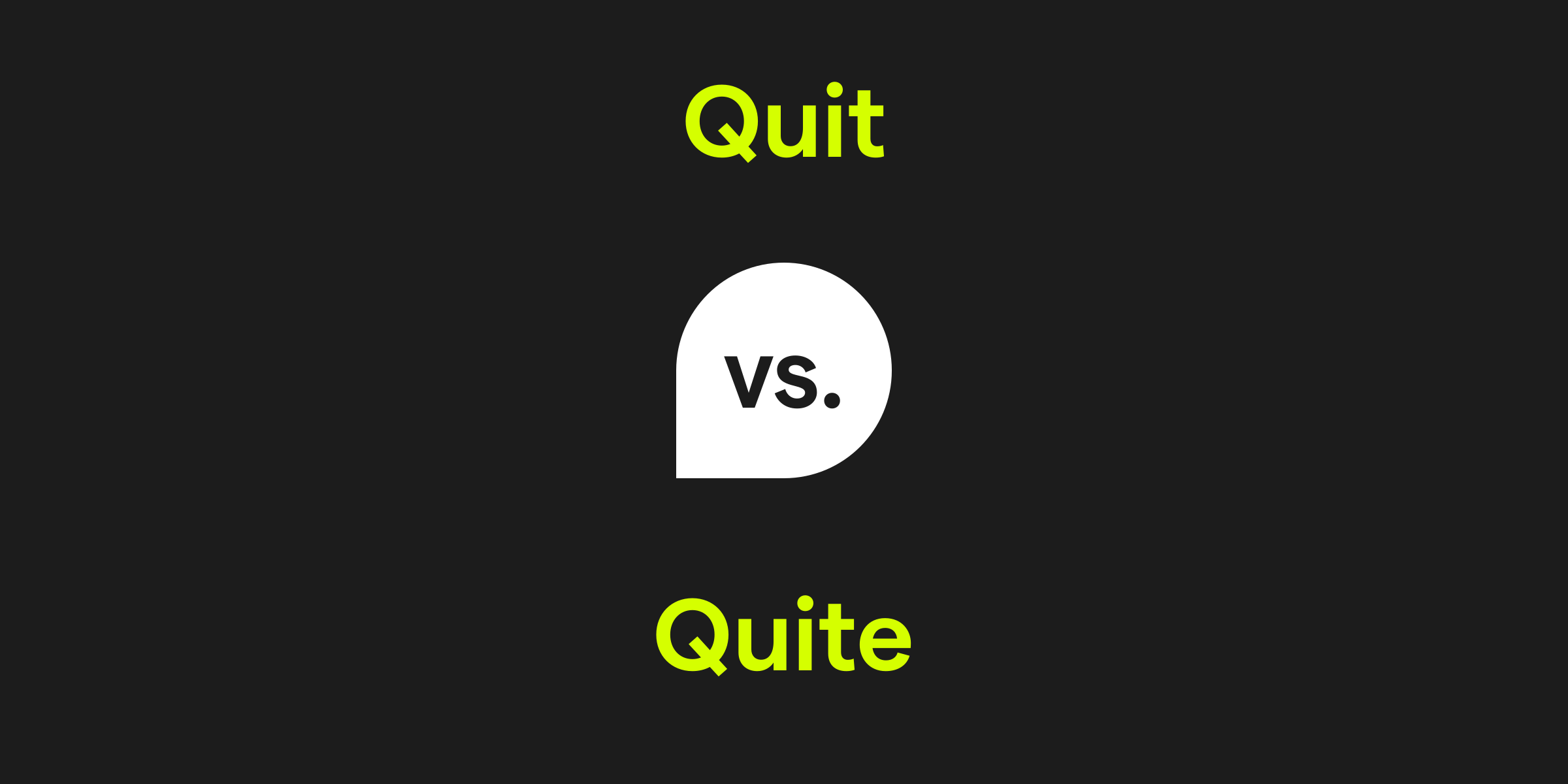Quit vs. Quite: What's the Difference?
Confusion often arises between quit and quite, which are homophones but have distinct meanings. Quit is a verb that means to leave, stop, or discontinue an action or job. The variant word quite is an adverb that emphasizes the degree of a particular quality, often used to express that something is completely or to a significant extent as described. These words are commonly misplaced due to their similar spelling and pronunciation.

How do you use the word quit in a sentence?
The word quit is used to express the act of leaving or stopping something, often a job or a habit. It usually implies a final or complete end to an activity. Because it is a verb, quit will often be seen with a direct object that specifies what is being quit.
Examples of quit in a sentence
- She decided to quit smoking for her health.
- He quit his job to travel the world.
- After hours of trying, I think it's time we quit this game.
How do you use the word quite in a sentence?
The word quite is an adverb used to modify adjectives or other adverbs, often to enhance or slightly modify the degree to which they apply. It is often used to express that something is to a significant extent but not completely. Quite can also be used to mean 'completely' or 'entirely,' depending on the context and the adjective that follows.
Examples of quite in a sentence
- The movie was quite interesting, though it was longer than I expected.
- She was quite pleased with the results of her hard work.
- It's quite cold outside, so don't forget to wear a coat.
Quit and quite definition, parts of speech, and pronunciation
Quit definition:
Verb. To stop, discontinue, or leave something such as an activity, place, or job.
Quit parts of speech:
Quit pronunciation:
Pronounced as /kwɪt/.
Quite definition:
Adverb. To the utmost or most absolute extent or degree; absolutely; completely.
Quite parts of speech:
Quite pronunciation:
Pronounced as /kwaɪt/.
Verb. To stop, discontinue, or leave something such as an activity, place, or job.
Quit parts of speech:
- Verb: He wants to quit gambling and focus on his health.
Quit pronunciation:
Pronounced as /kwɪt/.
Quite definition:
Adverb. To the utmost or most absolute extent or degree; absolutely; completely.
Quite parts of speech:
- Adverb: The movie was quite enjoyable, contrary to my expectations.
Quite pronunciation:
Pronounced as /kwaɪt/.
Quit vs. Quite in a nutshell
To summarize, quit is a verb meaning to stop or leave an activity or place, signifying a complete cessation. On the other hand, quite is an adverb that intensifies the description it modifies, often implying totality or a high degree. While they sound similar, their use in sentences is vastly different, with quit relating to actions and quite to descriptions and extent. Remembering their distinct functions will greatly reduce the chance of misuse.
Get AI Writing Assistance Wherever You Type
Make sure your vocabulary is on point and every punctuation mark is in the right place, no matter where you’re working. Grammarly works across more than 1 million websites and apps so you can improve your writing without copying, pasting, or breaking focus.

More Commonly Confused Words
Interest piqued? Pore (not pour) over other commonly confused words to help your writing reach peak (not peek) performance.